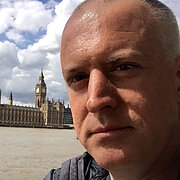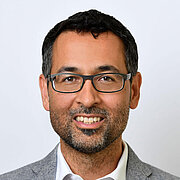Over a billion people now live in nations where same-sex marriage is legal, but nearly three billion people live in countries where being gay is a crime. The treatment of gay men, lesbians and transgender people around the world frequently makes headlines. In Europe and the Americas, it has exemplified how dramatic social and legal change can come about. But these changes contrast with the absence of rights in other parts of the world, from discrimination driven by homophobia to harsh punishments, including the death penalty, enshrined in law.
How can legal and social change be further encouraged? The gay rights movement became successful when it became personal, about people not stereotypes. There is powerful evidence to show that LGBTQ representatives have a dramatic impact on the progress on gay rights in their countries, states and towns.
Andrew Reynolds, a Visiting Scholar at the Hertie School, is Professor of Political Science and the Director of the LGBTQ Representation and Rights Research Initiative at the University of North Carolina, Chapel Hill. He has led the research into the presence and influence of out elected officials. He will share insights about the impact of LGB elected officials and transgender/gender variant politicians.

Andrew Reynolds' research and teaching focus on democratisation, constitutional design and electoral politics. He is particularly interested in the presence and impact of minorities and marginalised communities. He has worked for the United Nations, the International Institute for Democracy and Electoral Assistance (IDEA), the UK Department for International Development, the US State Department, the National Democratic Institute, the International Republican Institute, the Organization for Security and Cooperation in Europe (OSCE) and the International Foundation for Election Systems. He has also served as a consultant on issues of electoral and constitutional design for numerous countries among them Afghanistan, Burma, Iraq, Lebanon, Northern Ireland, South Africa, Sudan, Syria, and Ukraine. He has received research awards from the US Institute of Peace, the National Science Foundation, the US Agency for International Development, and the Ford Foundation.

Moderation:
Mark Kayser is Professor of Applied Methods and Comparative Politics at the Hertie School. His research primarily focuses on elections and political economy. Kayser’s major projects centre on partisan asymmetries in electoral accountability, media reporting on the economy, and the effect of electoral competitiveness on incumbent behaviour.

